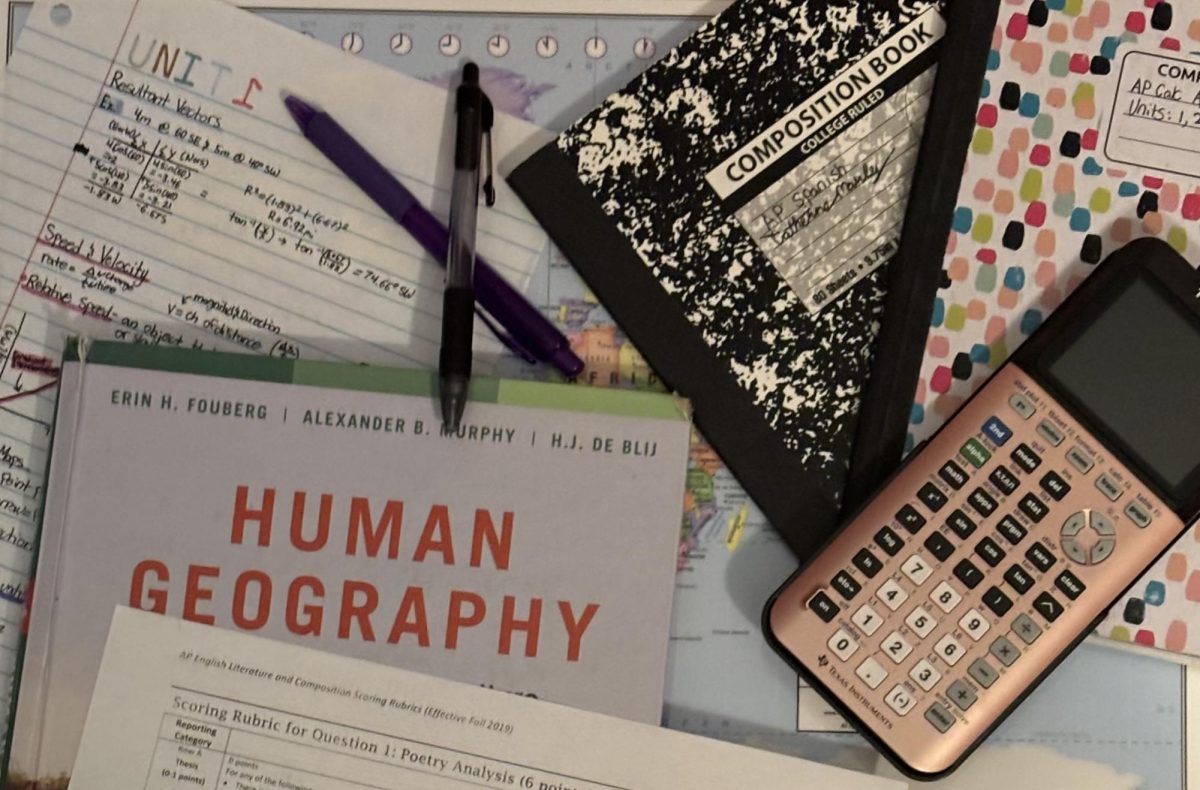As Wakefield students begin class registration for the 2024-2025 school year, many are choosing to enroll in their first advanced placement classes. Advanced placement classes, commonly referred to as AP classes, are courses with a college-level curriculum designed for a high school setting.
Ranging a series of subject matters from Physics to Art History, these unique classes help students prepare for the rigorous, high-level work of college courses while still in high school. AP United States History and Government teacher Lance Atkinson elaborates on the benefits of taking AP classes.
“[Students get] the opportunity to do work that [they] don’t normally do, [such as] fun projects that demonstrate [their] learning,” said Atkinson. “[They] also learn a lot of critical thinking and writing skills, which prepares students for college, unlike a traditional class in high school.”
Among the benefits of gaining valuable skills, students also have the opportunity to earn college credit for taking these classes. This can be achieved by earning at least three out of five on AP exams, international tests created by The College Board given to all students who have taken AP courses. These challenging tests require students to devote ample time to prepare and to gain a deep understanding of the material in the course. AP Calculus teacher Kerry Regan elaborates on the importance of preparing students for the exam.
“It’s not just learning the material or getting the answers right, but also presenting yourself in the best way possible so you can be successful on that exam to earn the college credit,” Regan said.
Teachers of AP courses emphasize the standard of work expected on the AP exam throughout the semester.
“Every day I remind [students] and teach [them] about what College Board looks for and about how they ask questions,” Atkinson said.
Earning college credit from these classes is the end goal, however, it is important to acknowledge the value of experiencing college-level work while in high school.
“College Board does acknowledge that even a two [on the AP exam], while it does not get you college credit, is actually a good measure that you are still prepared for college,” Atkinson said. “It’s not always about getting the credit.”
Though AP classes come with many enticing opportunities, the road to success in these high-level courses is not an easy one. Wakefield senior Mary Marley has taken 11 AP courses and knows firsthand how difficult they can be.
“My first AP class was AP World History, and it was really challenging. It was unlike any [class] I had ever taken before,” Marley said. “[I] had to be able to recount [the curriculum] in such vivid detail, not only recount it but build connections, it was just such a high level of thinking and analysis that I wasn’t used to.”
Students should also be thoughtful when selecting their courses. Trinity Williams, senior at Wakefield and participant in numerous AP courses, advises students against taking courses just to add to their resume.
“Don’t get hyper-fixated on the rigor alone. If you’re taking [AP classes] to better your college transcript, keep in mind that you also need time to dedicate to extracurriculars,” Williams said. “It’s not only about how many AP classes you have.”
For some students, narrowing down the vast selection of AP courses offered at Wakefield can be overwhelming.
“Take AP classes for courses that you enjoy. You will be spending a lot of time outside of school on the work for that AP class, and if you despise the subject, you will not enjoy that time that you are spending on that subject,” Regan said. “Colleges aren’t just looking at the number of classes you’re taking, they’re looking at how well you do.”
AP courses are undoubtedly rigorous, however, don’t let the challenge deter you from taking these classes. Marley explains that struggling in these courses is completely normal.
“You just have to remind yourself that it’s a period of adjustment and that you’ll find your own study strategies. Just don’t give up, and take it at your own pace. Don’t feel bad if it’s hard at first,” Marley said.
With a little determination and careful selection, AP classes can be a challenging, yet exciting opportunity to broaden your knowledge in high school.
“It’s going to be hard at first,” Marley said. “But [AP courses] really [are] a great opportunity that I think everyone should at least try out.”










